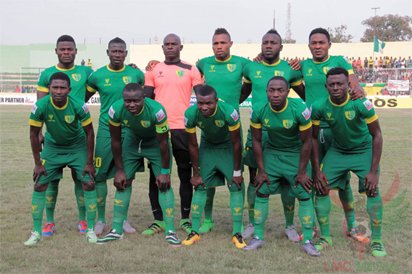
Australia and New Zealand have been announced by FIFA as the joint hosts of the 2023 Women’s World Cup.
The joint bid beat that of Colombia, which was the only other rival in the running after Brazil and Japan dropped out of the race earlier in June.
The winning bid received 22 of the 35 votes cast by the FIFA Council members, with Colombia getting 13 votes.
The 2023 tournament will feature 32 teams for the first time in the women’s game – up from the current 24.
The competition is scheduled to take place from July to August 2023.
“The bidding process was highly competitive. We would like to thank both of the bidders for their remarkable work. It was really, really well prepared,” FIFA president Gianni Infantino said.
Infantino also suggested the women’s tournament could be staged every two years and is keen for South America and Africa to stage it.
Infantino also announced a funding boost for the sport.
“We have decided to award $1bn (£805m) to the development of women’s football in the coming four years,” he said.
“We experienced last year in France a fantastic Women’s World Cup. It broke all records. It brought women’s football to a truly global stage.”
The tournament will be the first World Cup hosted across two of FIFA’s continental confederations (Australia are in the Asia confederation, while New Zealand are part of Oceania).
Chris Nikou, president of Football Federation Australia (FFA) said: “Not only will it be the first ever co-confederation hosted Fifa World Cup and the first ever Fifa Women’s World Cup in the Asia-Pacific region, but we will unlock the huge potential for growth in women’s football in the Asia-Pacific region.”
The president of New Zealand Football, Johanna Wood, said: “We believe we have been given a treasure, and we will look after that treasure.
“We will work towards putting women’s football even more front and centre on the world stage.”
The countries have proposed to stage matches at up to eight grounds in Australia:
- Stadium Australia, Sydney (the final), capacity: 70,000
- Sydney Football Stadium, capacity: 42,512
- Melbourne Rectangular Stadium, capacity: 30,052
- Brisbane Stadium, capacity: 52,263
- Perth Rectangular Stadium, capacity: 22,225
- Hindmarsh Stadium, Adelaide, capacity: 18,435
- Newcastle Stadium, capacity: 25,945
- York Park, Launceston, Tasmania, capacity: 22,065
And five stadiums in New Zealand:
- Eden Park, Auckland (opening game), capacity: 48,276
- Wellington Stadium, capacity: 39,000
- Christchurch Stadium, capacity: 22,556
- Waikato Stadium, Hamilton, capacity: 25,111
- Dunedin Stadium, capacity: 28,744
Nigeria’s Super Falcons will hope to make it nine out of nine at the World Cup when qualification starts.










